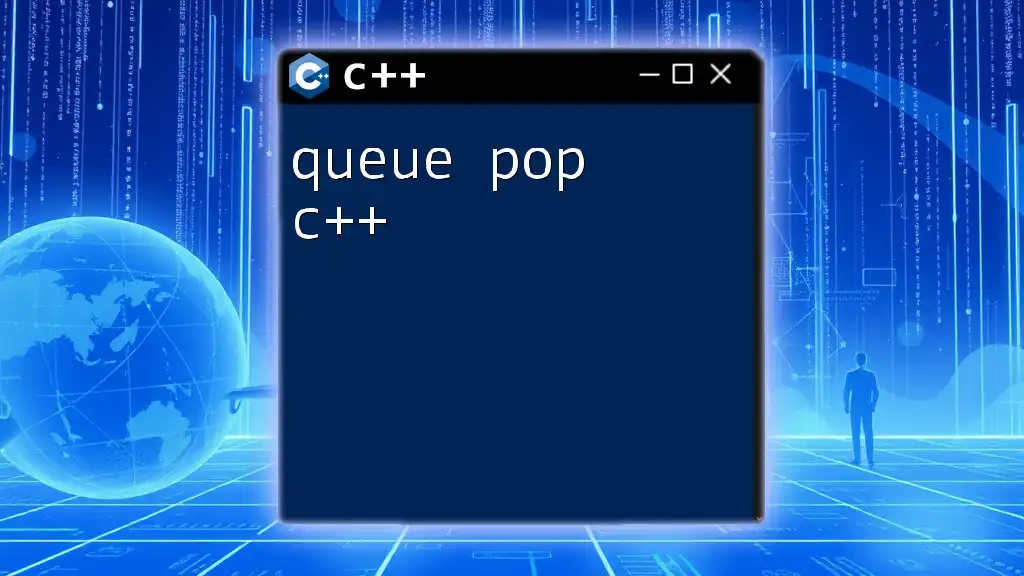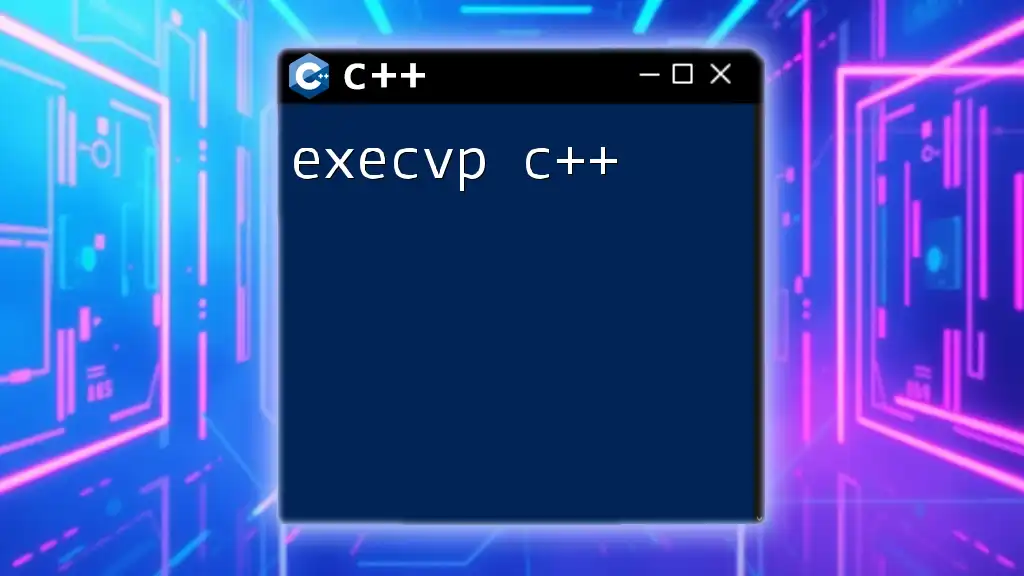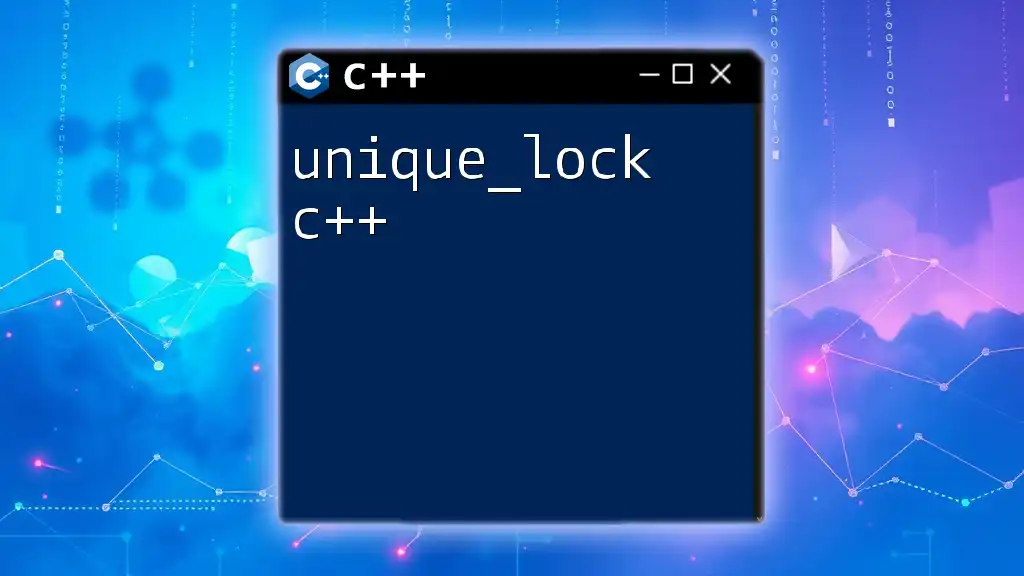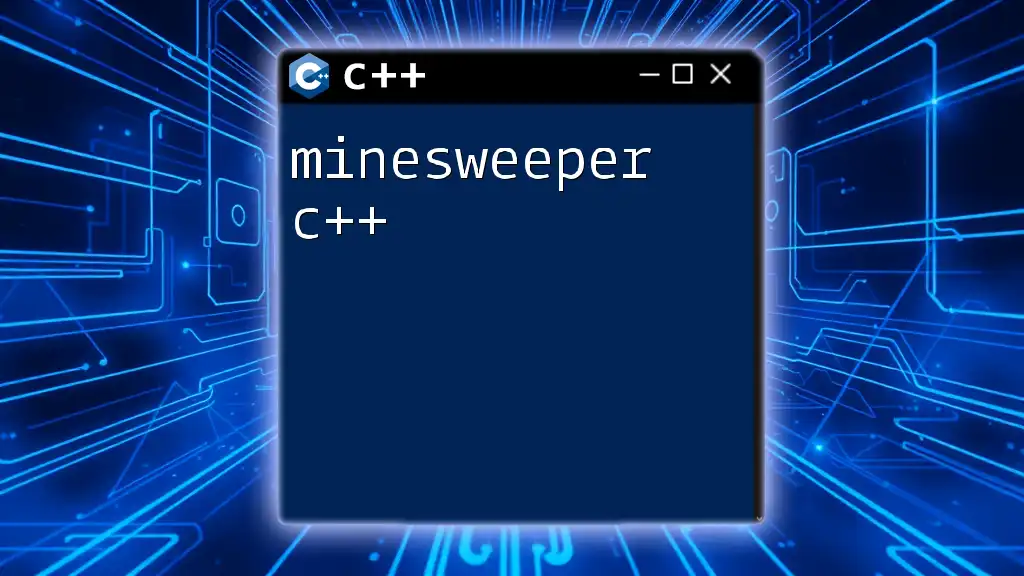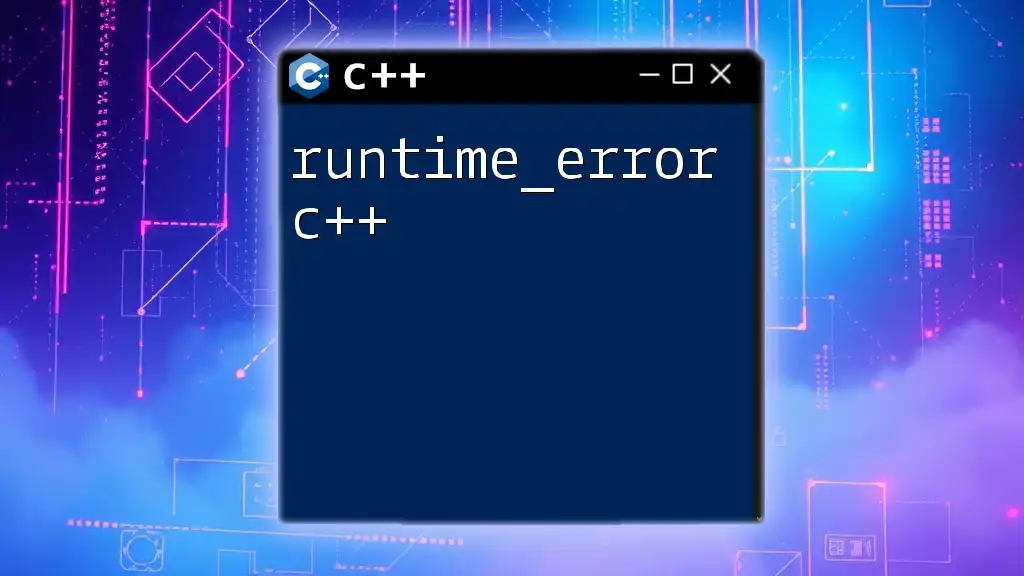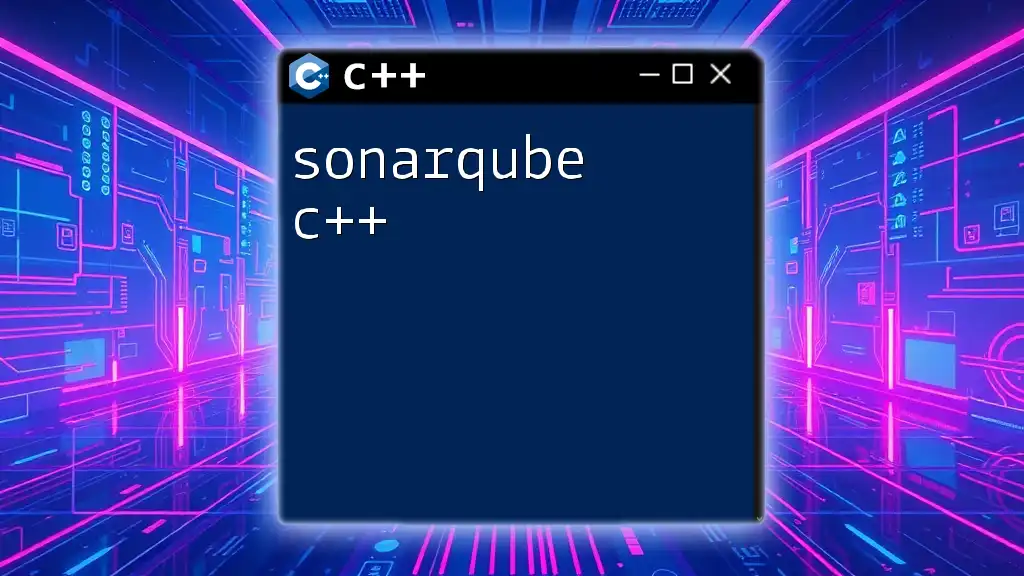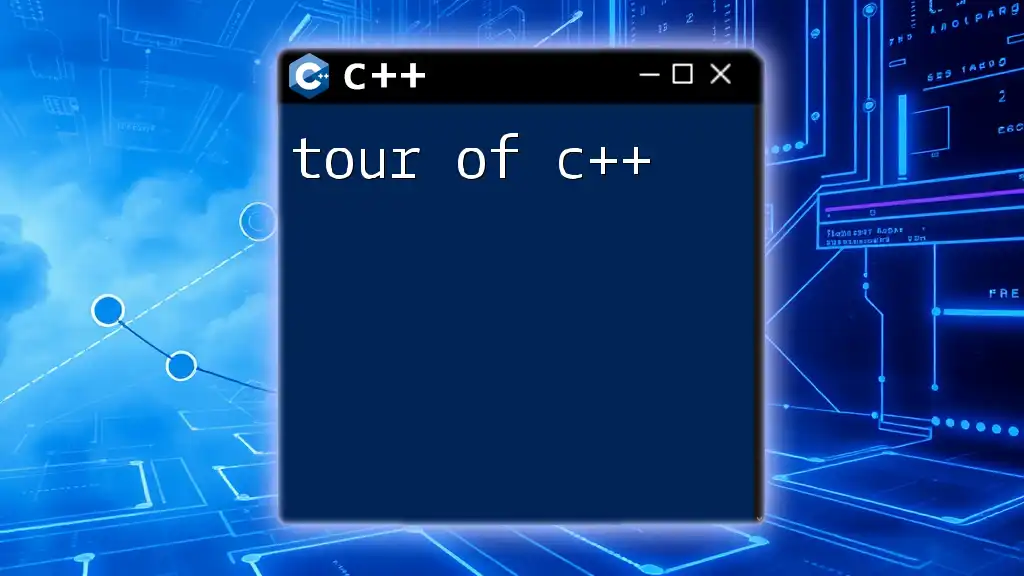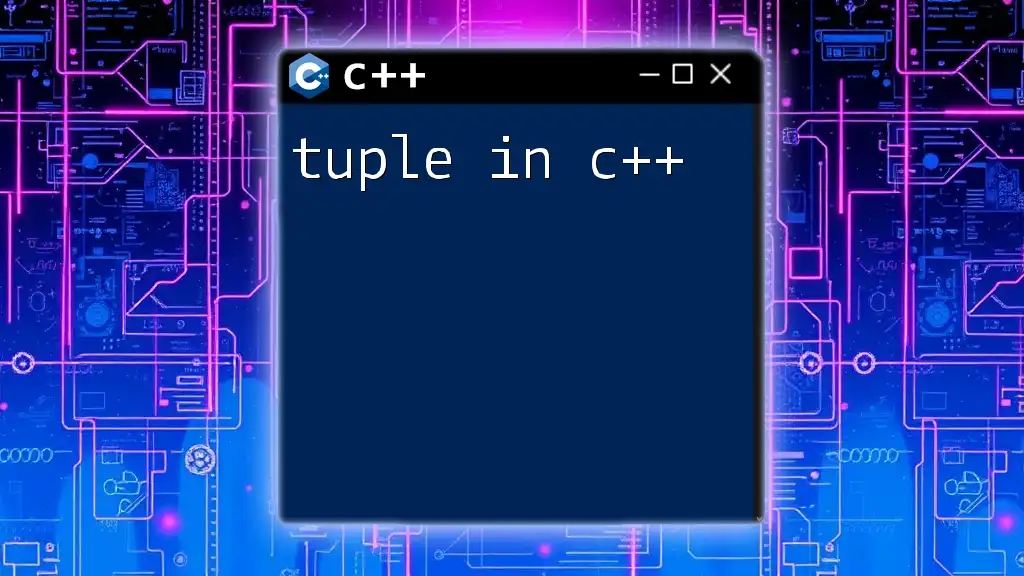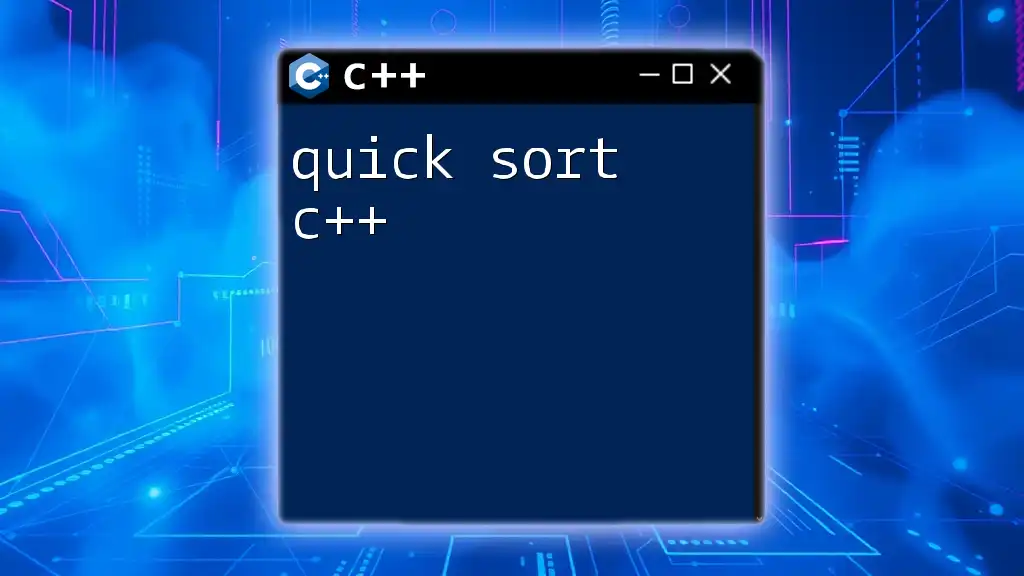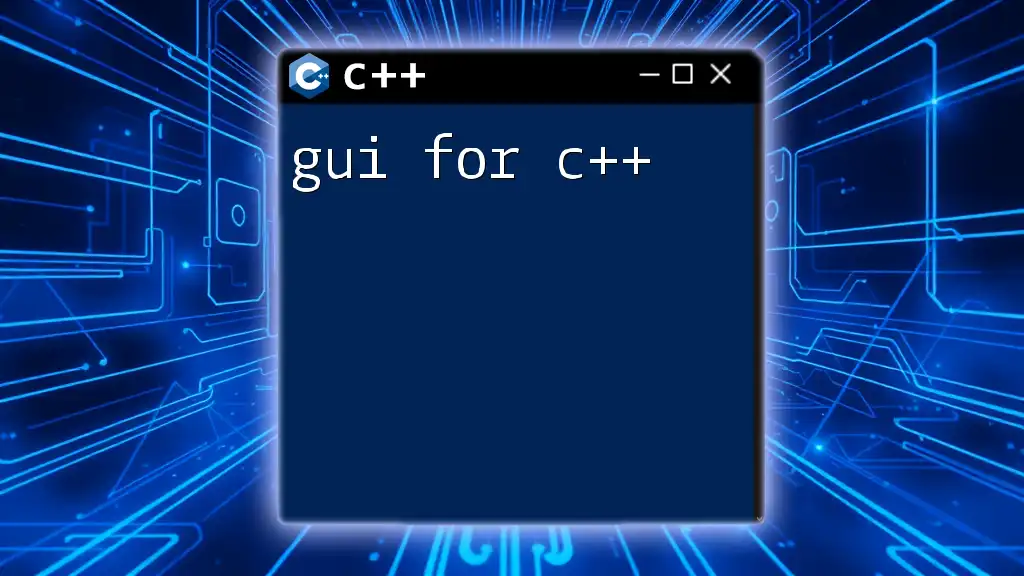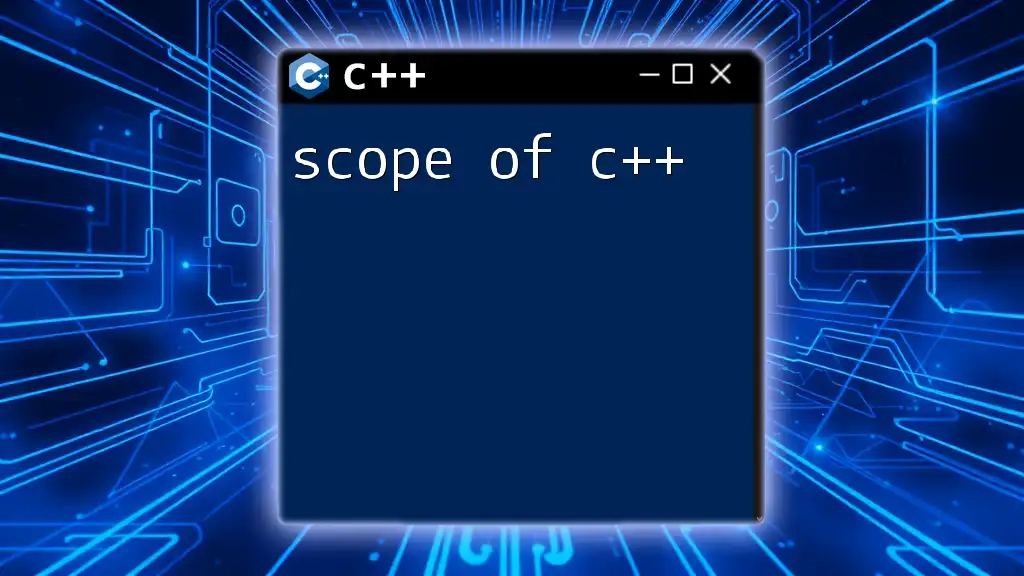In C++, the `pop()` function removes the front element from a queue, decreasing its size by one and allowing for the next element to be accessed.
Here's a code snippet demonstrating the use of `pop()` on a queue:
#include <iostream>
#include <queue>
int main() {
std::queue<int> q;
q.push(1);
q.push(2);
q.push(3);
// Remove the front element
q.pop(); // This will remove '1'
// Display the front element after pop
std::cout << "Front element after pop: " << q.front() << std::endl; // Output will be '2'
return 0;
}
Understanding C++ Queues
What is a Queue?
A queue is a data structure that follows the First In First Out (FIFO) principle. In simpler terms, the first element added to the queue will be the first one to be removed. This structure is akin to a line of people waiting to check out at a store; the person at the front of the line is served first.
Queues are used in various real-world applications such as managing tasks, handling requests in a server, and synchronizing processes in multithreading environments.
Types of Queues in C++
In C++, there are multiple types of queue implementations:
-
Standard Queue: Implemented through the `std::queue` class, this is the most common type used in C++. It provides essential queue operations like `push`, `pop`, and `front`.
-
Priority Queue: This type of queue serves elements based on their priority rather than their order in the queue. It is particularly useful in scenarios like job scheduling where higher-priority tasks should be processed first.
-
Circular Queue: Unlike the standard queue, a circular queue treats the storage as a circular buffer. It's more efficient for certain applications, as it prevents wastage of space in the array but requires a bit more complex implementation.
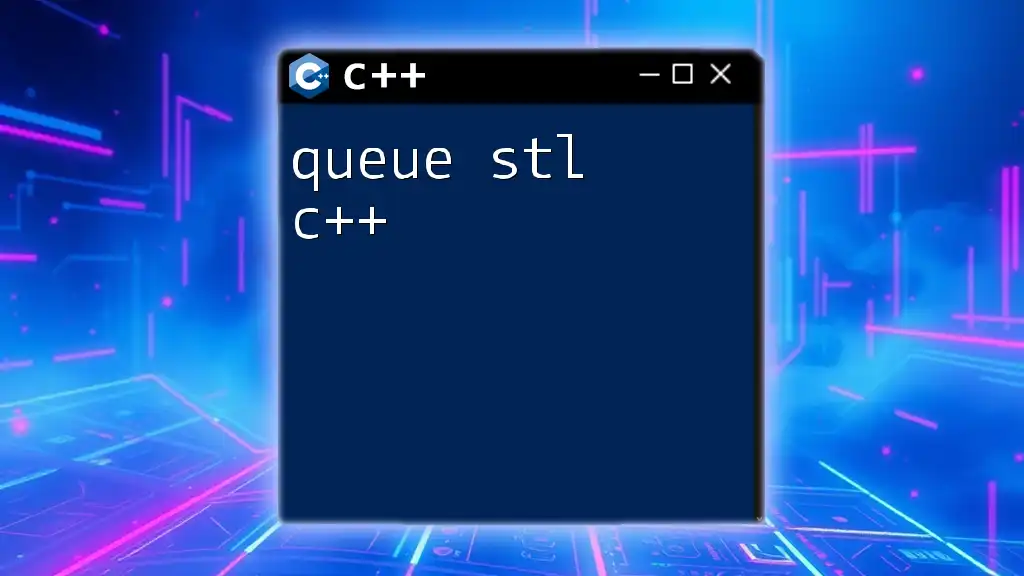
The `pop` Operation in C++
What Does `pop` Mean?
The `pop` operation in a queue refers to the process of removing the front element from the queue. This is a critical function as it allows for the queue to manage its data dynamically and ensures that elements are served in the correct order.
How `pop` Works in a C++ Queue
In C++, the `pop` operation removes the element located at the front of the queue and effectively shifts all other elements one position forward. After a `pop`, the size of the queue decreases by one.
It’s important to note that after performing a `pop`, the element is completely removed from the queue and cannot be accessed again unless it was stored in a variable prior to removal.
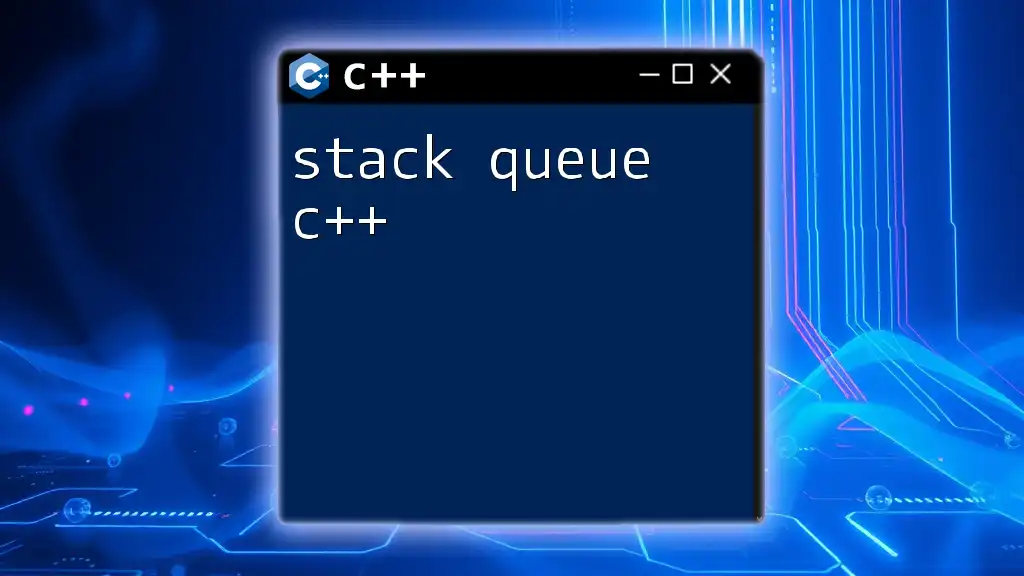
Implementing `queue pop` in C++
Setting Up Your Environment
Before we can use the queue and its `pop` operation, we must include the necessary libraries in our program. The two main libraries we will need are `#include <queue>` for queue operations and `#include <iostream>` for input and output operations.
Here's a basic setup for using a queue in C++:
Example: Basic Queue Operations
#include <iostream>
#include <queue>
int main() {
std::queue<int> myQueue;
myQueue.push(10);
myQueue.push(20);
myQueue.push(30);
// Initial queue contents
std::cout << "Initial queue contents: ";
while (!myQueue.empty()) {
std::cout << myQueue.front() << " ";
myQueue.pop();
}
return 0;
}
In this example, we've created a queue and added three integers to it. As we display the contents, each item is removed from the queue through the `pop` operation, demonstrating the FIFO principle.
Detailed Look at the `pop` Method
How to Use the `pop` Method
The `pop` method is called on the queue object and doesn't take any parameters. Here's the general syntax:
myQueue.pop();
Before invoking `pop`, it is crucial to check if the queue is empty to prevent runtime errors. Accessing elements from an empty queue is undefined behavior and can lead to erratic program crashes.
Code Snippet: Using the `pop` Method Safely
#include <iostream>
#include <queue>
int main() {
std::queue<int> myQueue;
myQueue.push(10);
myQueue.push(20);
myQueue.push(30);
if (!myQueue.empty()) {
std::cout << "Popping front element: " << myQueue.front() << std::endl;
myQueue.pop();
} else {
std::cout << "Queue is empty, cannot pop." << std::endl;
}
return 0;
}
In this advanced example, we first check if `myQueue` is empty before calling `pop()`. If it is empty, we handle it gracefully by informing the user. This is a good practice to ensure that your program behaves as expected.
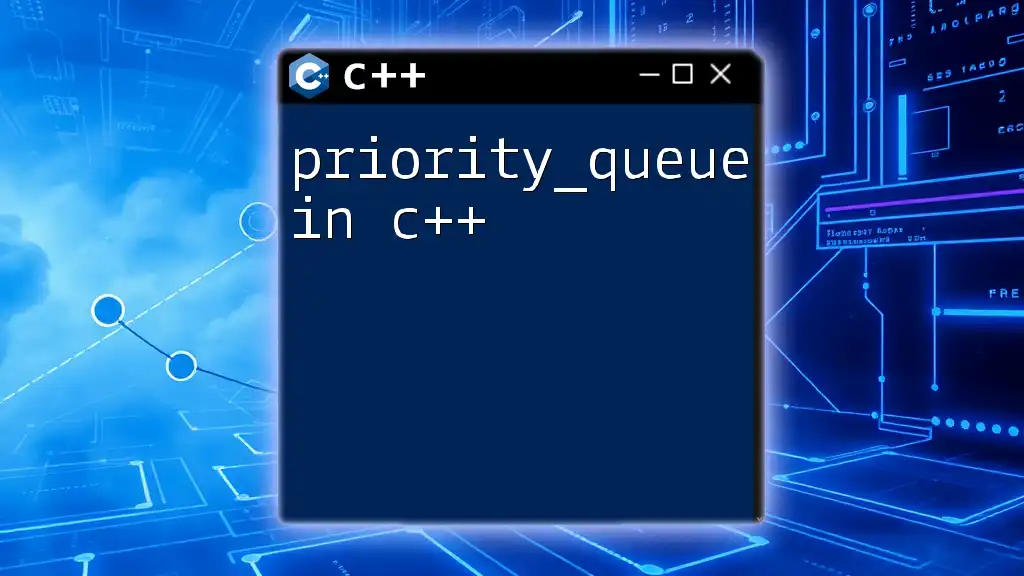
Common Mistakes When Using `queue pop`
Attempting to Pop an Empty Queue
Attempting to pop an element from an empty queue will lead to undefined behavior. Ensure that checks are in place prior to calling `pop`. Ignoring this can result in crashes or unexpected outputs.
Forgetting to Check Queue Size
Forgetting to check whether the queue is empty before executing the `pop` function is a common beginner error. Always ensure you check the queue size using `myQueue.empty()` before popping elements. This simple precaution can prevent many runtime errors.
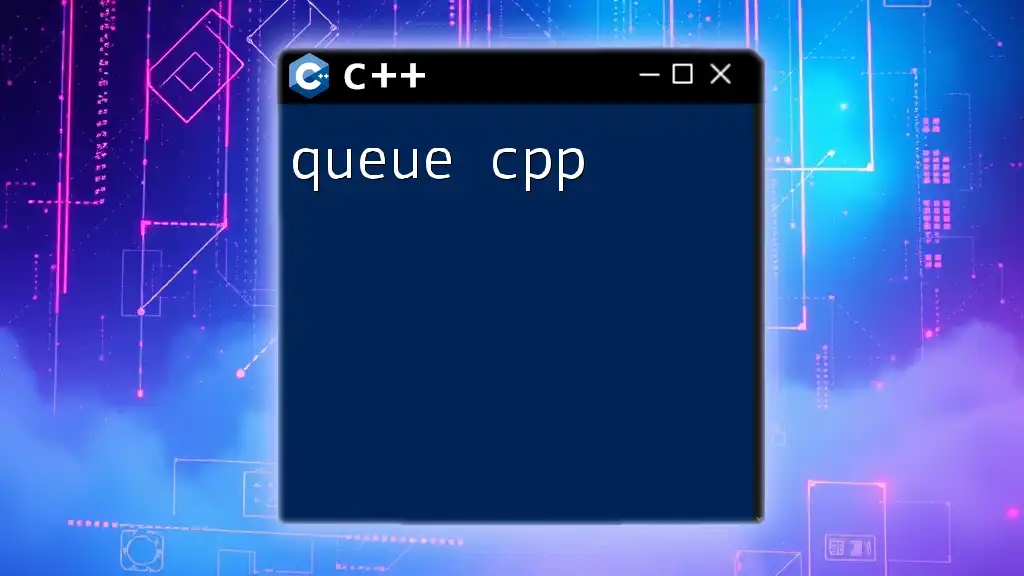
Advanced Queue Operations and Considerations
Performance of Queue Operations
In terms of computational efficiency, both the `push` and `pop` operations have a time complexity of O(1), meaning they execute in constant time. Queues are particularly efficient for applications such as scheduling tasks and handling asynchronous data, where order is paramount.
Alternative Queue Implementations in C++
While `std::queue` is the standard implementation and suffices for most use cases, there may be scenarios that demand custom implementations. For instance, creating a queue using an array or a vector allows for tailored behavior to optimize specific workloads or to learn more about underlying data structures.
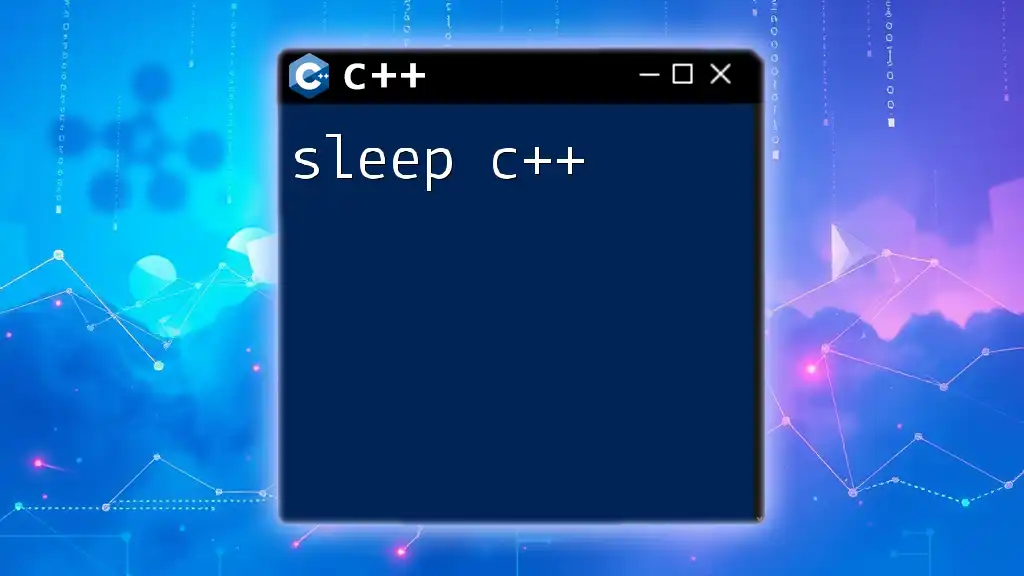
Conclusion
In summary, the `queue pop c++` operation is a fundamental aspect of working with queues in C++. Understanding how to properly use the `pop` method, while adhering to best practices, ensures robust and effective programming. As you become more proficient with queues, consider implementing various queue types and practicing common queue operations to reinforce your knowledge.
By consistently practicing these concepts and referring to additional resources, you can deepen your understanding and mastery of queues in C++.

